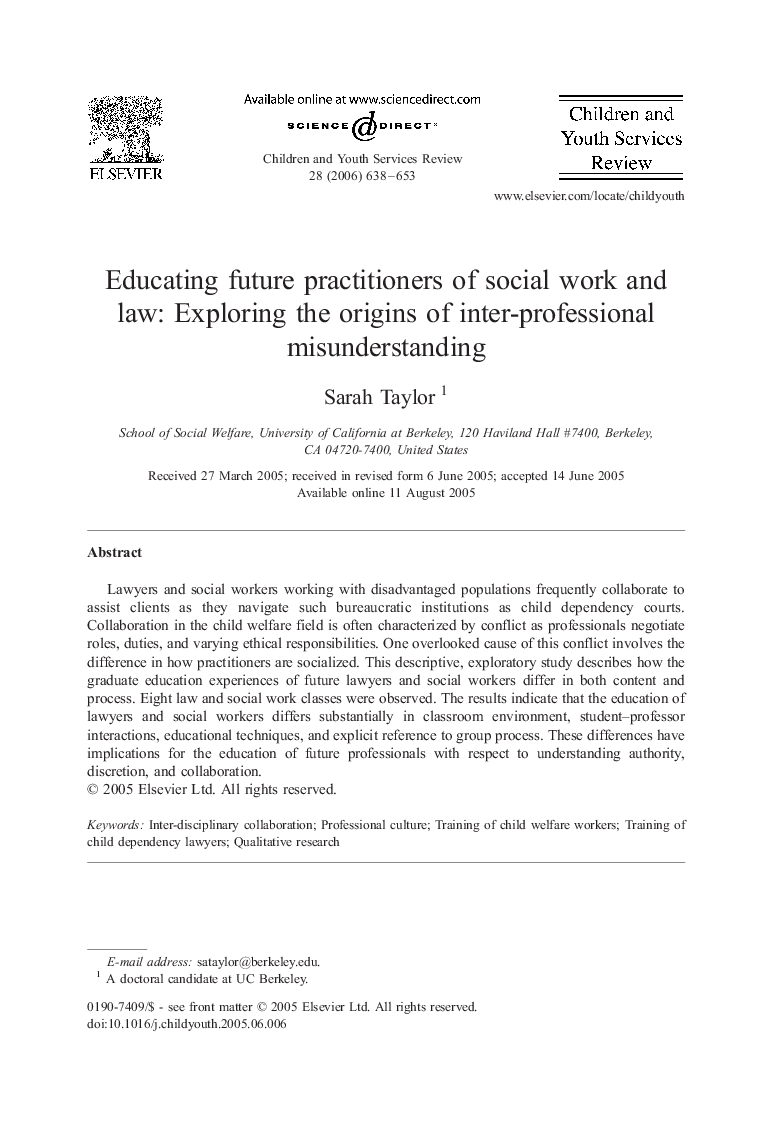| Article ID | Journal | Published Year | Pages | File Type |
|---|---|---|---|---|
| 347384 | Children and Youth Services Review | 2006 | 16 Pages |
Lawyers and social workers working with disadvantaged populations frequently collaborate to assist clients as they navigate such bureaucratic institutions as child dependency courts. Collaboration in the child welfare field is often characterized by conflict as professionals negotiate roles, duties, and varying ethical responsibilities. One overlooked cause of this conflict involves the difference in how practitioners are socialized. This descriptive, exploratory study describes how the graduate education experiences of future lawyers and social workers differ in both content and process. Eight law and social work classes were observed. The results indicate that the education of lawyers and social workers differs substantially in classroom environment, student–professor interactions, educational techniques, and explicit reference to group process. These differences have implications for the education of future professionals with respect to understanding authority, discretion, and collaboration.
